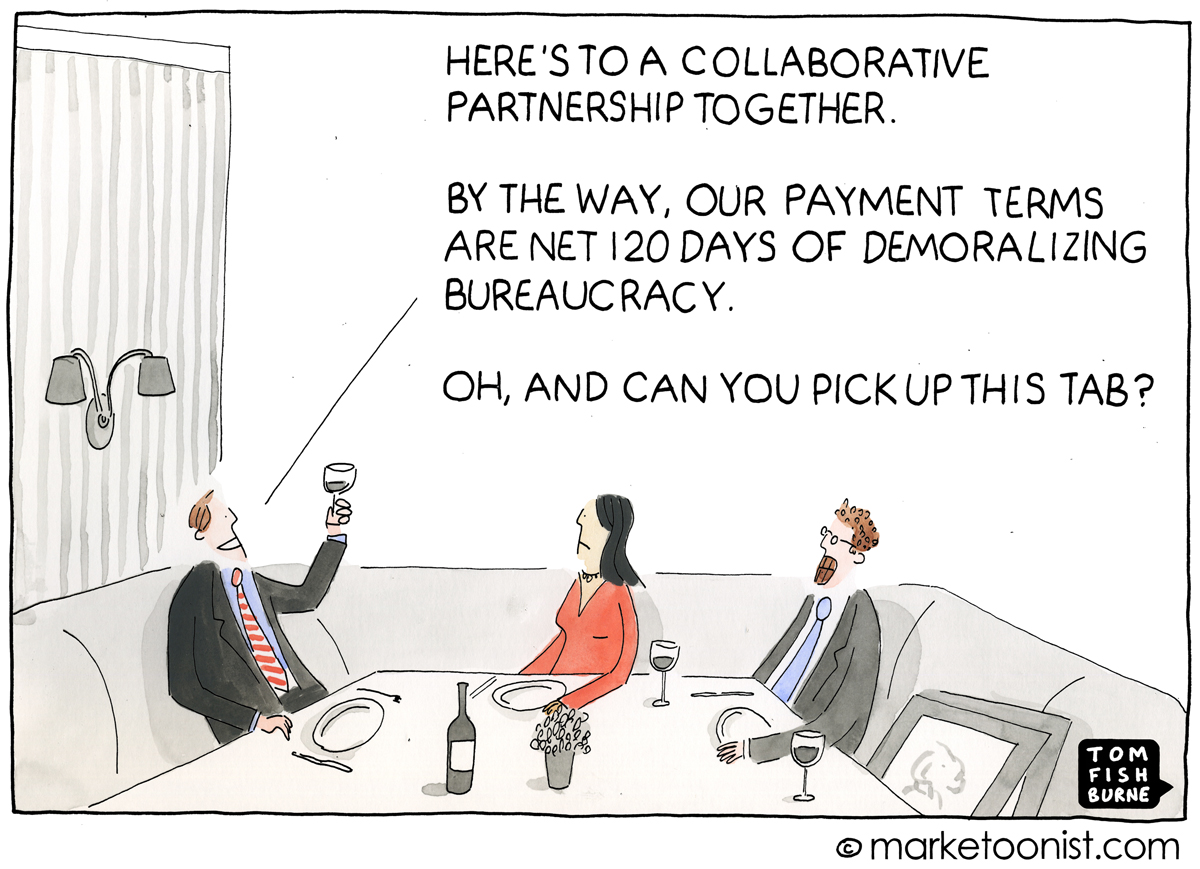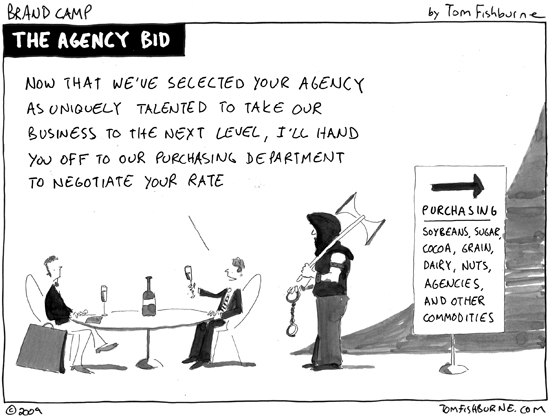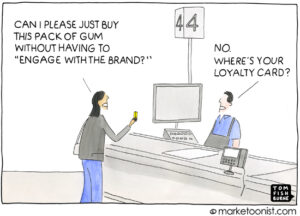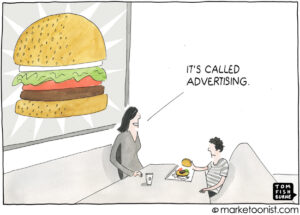I’ve worked on both sides of the client-agency fence and have seen the power of deeply collaborative relationships between brands and their creative partners. Mutual respect and trust leads to the most engaging work.
I’ve also seen what happens when vendors are treated too much like, well, vendors. Creative services are sometimes negotiated by the same procurement groups that source soybeans or corrugate cardboard. It can lead to the lowest common denominator and can take the wind out of the sails of any creative relationship.
In the last few years, many big brands have started increasing payment terms to 90 or even 120 days to suppliers. There was a piece last week in the New York Times that talked about how these practices are turning “suppliers into lenders.”
I think sooner or later, there’s a cost to the client-agency ecosystem of squeezing creative partners. Treating an agency like a commodity will lead to commodity results. In a world with shrinking consumer attention spans, the bar has never been higher to deliver exceptional work that cuts through. Exceptional work requires an exceptional collaborative partnership.
I’d love to hear your thoughts on how to build client-agency relationships.
(Marketoonist Monday: I’m giving away a signed cartoon print. Just share an insightful comment to this week’s post by 5:00 PST on Monday. Thanks!)
Here’s a cartoon I drew on this topic in 2009.




Pramod Chaganti says
Often, procurement is treated just as procurement. To progress from a supplier to a vendor to a partner, there is a need to treat procurement as a valuable stake holder. I have seen procurement even helping us to win business because we showed them how their previous decisions have impacted the business and the value we together delivered to the company. In short we made them partner to the decision making vs seeing them as a bottleneck.
Jonathan Ellis says
Cuts two ways though; all too often the proposed partnership with the Agency Principals actually turns into the Junior Account Exec turning up to meetings in their place
Karen Drury says
It’s not just the ‘creatives’ that suffer from this, I have to say. Not-quite-so-creatives also have to deal with three month payment terms and the result is that even the most positive of relationships begin to feel unbalanced, cap-in-hand and slightly resentful. The smaller the supplier, and therefore the more critical the payment, the more intense the emotion. The more intense it is, the more it interrupts ANYONE doing their best work. In the end, I think, it comes down to not only ‘you get what you pay for’ – but how fast.
BC says
I think this is a complicated topic which brings to mind the difference between judging a movie based on trailers/TV commercials versus actually sitting thru it for 2 hours. It’s not about any one scene (or event/project) but rather the whole experience taken in total.
I could write a book but in the end, much of it comes down to being a people thing — from both sides. So fostering a positive client-agency relationship is not about creative briefs, collaborative spirit, payment terms and all that — a successful relationship is based on people on both sides who get that it’s about people on both sides…
“Familiarity breeds contempt” is an old saw for a reason.
But the one I’ve used often covers it for me: “treat your customers like prospects and your prospects like customers.” Deciding everything with that in mind would go a long way for the agency side…
Dan Jeffries says
A big part of the problems is corporate procurement departments that operate in a vacuum. Collaboration between marketing stakeholders and their procurement partners is the first step in overcoming the issue of marketing agencies being treated like commodity vendors.
I just wrote a blog piece on just this topic – very timely…
https://www.linkedin.com/pulse/great-procurement-built-collaboration-daniel-jeffries?trk=object-title
Steve WIllson says
Relationships are complicated. In an ideal partnership both sides get what they want out of the relationship. In most partnerships, however, you actually need to make some compromises to make it work. You need to decide what you can live with if you want to have the relationship.
In great companies Procurement is not simply the Department of Beating up Suppliers. They are the managers of the business relationships. They are often able to eliminate the incestual relationships that did exist between Marketing and Agencies, replacing them with more merit-based evaluations.
Unfortunately, most companies are not great, so the system gets distorted and no-one gets what they need to achieve great results.
Jean Storlie says
I agree with Karen Drury that this practice of treating agencies like commodity suppliers is problematic for other consultants. Why should a consultant serve as bank for a big corporation? I also agree with Dan Jeffries that the marketing teams need to insert themselves into the contract negotiations rather than just pass off the vendor to the Sourcing Department to negotiate the terms of the contract to ensure that their business partners are treated fairly by the company.
Tom Denford - ID Comms says
Another cracker, Tom you manage to jab firmly into the sore areas of the industry at just the right times and you bring the right tone in framing these tricky issues, to provoke constructive debate. I would love to have this one on my wall.
Payment terms is the big thorny issue amongst agencies and clients right now, its likely to be one of the biggest topics discussed at the Association of National Advertisers (US marketing trade body) conference in 2 weeks time. There has been a lot of press coverage given recently on both sides of the Atlantic to a UK trade body (MAA) calling for member agencies to “go out on strike against payment terms” that it claims were requested by ABInBev amongst other brands.
We run a lot of media pitches and I would argue that the issue of payment terms is much more significant for media agencies than creative agencies because some brands are asking for agencies to provide extended payment terms not just on the fees but also for the millions of pass through dollars given to media vendors. Some argue this is more than just delaying payments to boost cash flow purposes and amounts in fact to an unofficial credit facility. The NYT article you quote gives very good perspective of this.
I do sympathise with agencies being put under great pressure commercially, especially on payment terms, by big corporations but also I am continually amazed at how much some agencies end up undermining their own value propositions by throwing stuff at clients during negotiation and very rarely push back on fairly gentle client requests.
Media agencies are therefore rather complicit in these outcomes and generally do themselves little favor by offering to work on what they later claim are “unreasonable” terms. In my experience, in negotiations you very rarely hear an agency say absolutely no. This sadly sets a dangerous precedent for agencies, if they don’t want to play this game they need to learn when to say no and stand firmly behind their value propositions. They can also help their clients understand the benefit of fairer payment terms and the value this creates.
Dan Greenberg says
It’s even worse when you’re the one bringing the key enabling technology to the agency. There’s this idea that “you’ll get paid when we get paid” that then gets expanded to “you’ll get paid after going through 60-90 days of our bureaucracy after we go through 90-120 days of the client’s bureaucracy.” Not cool.
Joe Adamski says
The struggle between procurement and marketing is ever present, but nowhere more obvious than in agency relationships. The marketers view the relationship as fundamental, and see procurement’s actions as being detrimental to that relationship; procurement, on the other hand, sees the proverbial gold plating in the agency SOW and has their mandates to meet. Done correctly, however, these objectives aren’t mutually exclusive.
A high functioning procurement organization has three main tasks: the mundane administration of the procure-to-pay process; supplier relationship management; and strategic sourcing. Those last two have to go hand in hand to build an effective partnership and relationship between procurement and marketing. If the procurement category manager knows the area well, knows the players on both the company and agency side, then they can play the role of an honest broker and have a seat at the table. Marketers need to realize that the role of procurement is not to cut costs but instead to maximize the value of external spend – to most efficiently employ scarce dollars to achieve maximum impact.
In sourcing agency relationships, then, procurement adds value in ensuring that their company is buying the right services, from the right agency, structured to support them in the right way based on the company’s needs, and at a fair price. The marketers add value in assessing the technical competence, fit, and creative skill of the agencies. Taken together, working effectively, an alliance between marketing and procurement is very powerful and builds better, more effective trust-based agency-client relationships.